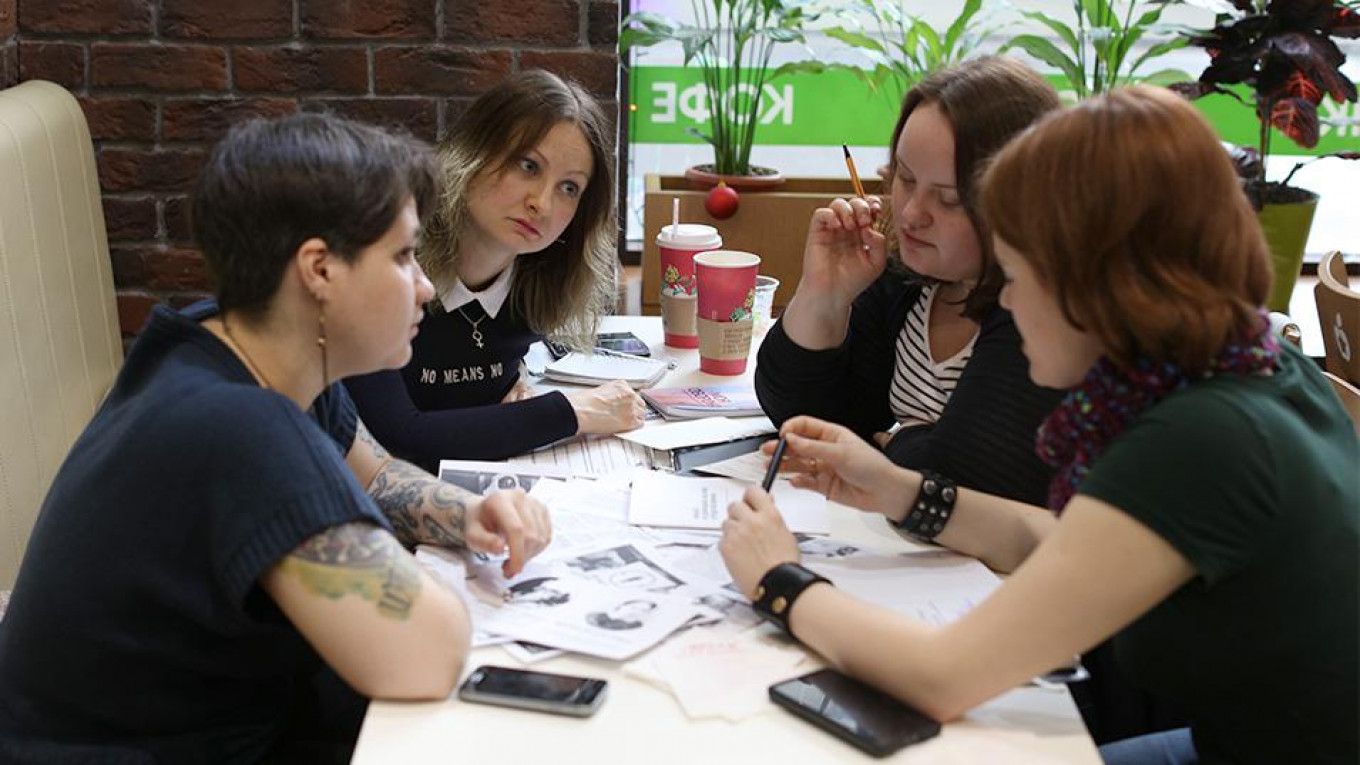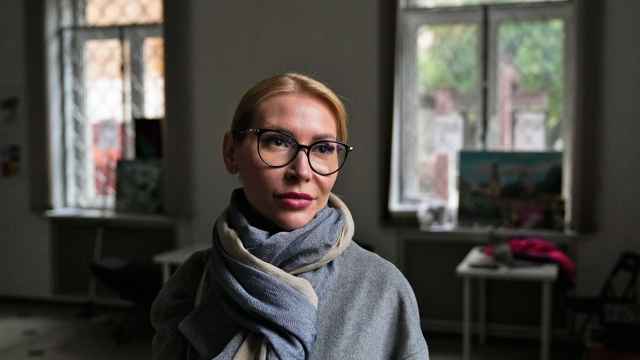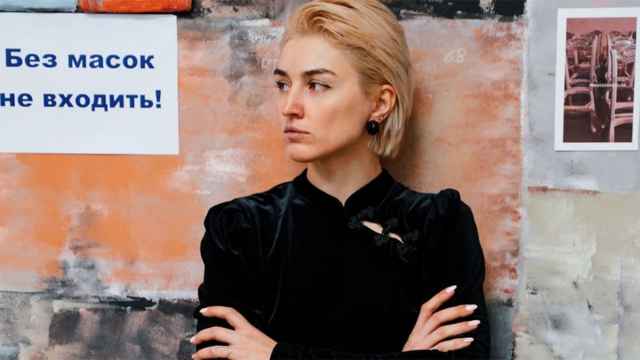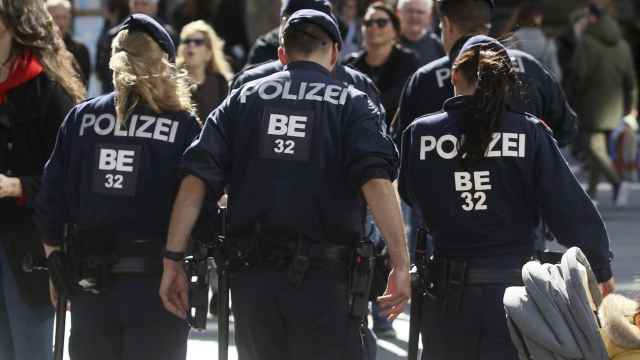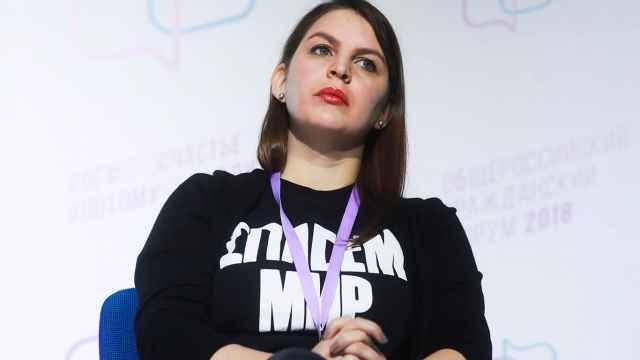In a quiet coffee shop in central Moscow, a small group of women are speaking in hushed, urgent tones. Nothing about these women in their early thirties sets them apart from the students or young families in the café.
No one would guess they belonged to an increasingly politically active movement of Russian feminists. The women are discussing the trial of Tatiana Sukhareva, a fellow feminist with presidential ambitions.
The openly gay activist had taken part in rallies and was a vocal critic of domestic violence, job discrimination and homophobia.
"To a first world citizen these views won’t look extreme," says Yulia Alexeyeva, an activist and volunteer at the Sisters sexual assault NGO. "But in Russia, they’re almost radical."
Shortly after launching her political career in 2014, Sukhareva was accused of violating the terms of a suspended sentence she received that year for selling fake insurance policies. In December 2017, she was sentenced to 5 years and 4 months for the violations, barring her from running for public office.
With women like Sukhareva sidelined from mainstream politics, members of Russia’s growing community of feminists say they are struggling for representation. "It’s important for there to be a real choice of candidates, whether male or female," says Natalia Timofeyeva, another activist from the group. "And we don’t have that."
The group is varied, and its members hold a range of political views, from radical to liberal. They agree, however, that issues central to women need to be defended in Russia, where feminism remains taboo.
"For some Russians, a feminist is a woman with opinions," says Timofeyeva, who runs the online feminist groups Female Power and FemView. "In this country, feminism is still a dirty word."
In spite of this, the community has grown in recent years, Alexeyeva adds, and the internet has played a key role in bringing people together. There are women’s groups on VKontakte, Russia’s biggest social media platform, which have tens of thousands of followers. "And the number is growing," she says.
Some of the support groups are not overtly political, discussing everyday issues like family life, body-positive fashion and supporting young mothers.
The goal is to create a support network for women. "The internet gives them an opportunity to say ‘I am not alone,’" Timofeyeva says.
The community is also taking its message offline. Last year, the group staged demonstrations against beauty pageants and sexism on university campuses.
On International Women’s Day, a group rallied at the Kremlin with signs that read "All power to women" and "We are the majority." Six activists were detained.
Even at events approved by the authorities, the women face arrest, fines or confrontations with far-right conservative groups like the Russian Orthodox activist group Sorok Sorokov.
Before protests, they leave instructions with friends and family detailing what to do in case they are detained, and their lawyers’ numbers are on speed dial. "We always have the necessary documents and medicine with us," says Alexeyeva. "Just in case."
Women were dealt a heavy blow at the start of 2017 when President Vladimir Putin decriminalized domestic violence, downgrading it to an administrative offense. "We lost that fight," says Kira Solovyova, one of the founders of the ONA (She) feminist association.
"We also didn’t achieve serious changes in other spheres like fighting anti-abortion policies or lifting profession bans on women," she told The Moscow Times, referencing Soviet-era laws excluding women from hundreds of professions.
Even though women are a majority in Russia — 78 million, compared with 66 million men — they remain underrepresented in government. Health Minister Veronika Skortsova, Deputy Prime Minister Olga Golodets and Central Bank Head Elvira Nabiullina are routinely cited as women at the top of Russian politics.
A closer look shows they are the exception: Women hold just 61 out of 450 State Duma seats.
Only one woman will be on the ballot in presidential elections in March — former reality TV star Ksenia Sobchak — along with seven male candidates. Sobchak has made women’s issues a part of her campaign, speaking openly against gender and sexual discrimination.
Russia’s feminists are skeptical she can bring real change.
"Is it sincere, or is she just trying to increase support from minority groups?" Solovyova asks.
"If we assume that a feminist is a woman who lives as she wants, then of course Sobchak is a feminist," adds Timofeyeva. "If a feminist is a woman who fights for the rights of all women, then she is not."
Some within the feminist community have called for a boycott of the elections while others argue that a female candidate is their best hope for improving conditions for women in Russia.
"We have to choose the least of all evils," Timofeyeva says. Alena Popova, a gender equality advocate, stresses the need for unity. "We have to strategize, to use all the doors we have to promote equality," she told The Moscow Times.
Elections aside, the list of issues Russia’s feminists want to make headway on in 2018 is daunting: the domestic violence law, maternity and paternity leave, abortion rights, post-divorce custodial matters, the pay gap — with women earning on average 30 percent less than men — and gender equality.
"We still don’t have [a gender equality] law because according to our constitution, women and men are equal," Popova says. "In reality, they’re not."
Their biggest obstacle, however, may be their compatriots. In a recent poll by the independent Levada Center, only 11 percent of Russians questioned said they wanted a woman to lead the country. "We should not only focus on protesting against, but also on fighting for something new and more progressive," says Solovyova.
For Popova, the question of whether Russia is ready for a woman president is a statistical one. With women outnumbering men, "Give it five to 15 years," she says.
In the meantime, no fine, prison sentence or threat of confrontation will discourage Russian feminists, says Alexeyeva: "I wouldn’t be able to sleep at night knowing I did nothing to help my sisters."
This article first appeared in our special ’Russia in 2018’ print edition. For more in the series, click here.
A Message from The Moscow Times:
Dear readers,
We are facing unprecedented challenges. Russia's Prosecutor General's Office has designated The Moscow Times as an "undesirable" organization, criminalizing our work and putting our staff at risk of prosecution. This follows our earlier unjust labeling as a "foreign agent."
These actions are direct attempts to silence independent journalism in Russia. The authorities claim our work "discredits the decisions of the Russian leadership." We see things differently: we strive to provide accurate, unbiased reporting on Russia.
We, the journalists of The Moscow Times, refuse to be silenced. But to continue our work, we need your help.
Your support, no matter how small, makes a world of difference. If you can, please support us monthly starting from just $2. It's quick to set up, and every contribution makes a significant impact.
By supporting The Moscow Times, you're defending open, independent journalism in the face of repression. Thank you for standing with us.
Remind me later.



